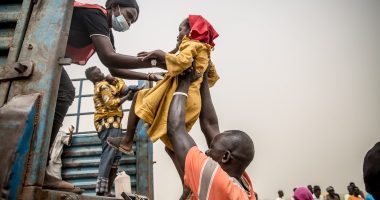
New strains of the coronavirus are prompting strict new rules for international travel, further complicating what was already a nearly impossible feat.
Global air traffic is severely depressed, in large part due to a maze of ever-changing travel rules around the world. International passenger demand in November was down 88% from year-earlier levels, according to the latest figures from the International Air Transport Association.
But as health officials worry that new coronavirus variants may be more contagious, more deadly or less responsive to vaccines, governments are taking measures ranging from outright bans on international flights to universal testing requirements in effort to contain further spread.
Jeffrey Ward, a travel adviser who helps people plan luxury trips, said the biggest fear for many travelers residing in the U.S is getting stuck abroad if they test positive for Covid-19, given new U.S. rules requiring passengers to test negative before boarding a flight. He has steered some toward Hawaii for their beach vacations instead of international destinations. The state requires a negative test to enter, but U.S. visitors won’t need a second test to return home.
“People are freaking out,” Mr. Ward said.
In the U.S., requirements that all passengers over 2 years old arriving from abroad test negative for Covid-19 went into effect Tuesday. Airlines, which have been charged with implementing the new rules, had asked for temporary exemptions for countries where testing capacity is limited; but the government said no, citing the need for a testing regime that is as tight as possible to keep out new strains.
Prior to boarding. airline employees will check to make sure passengers’ test results are valid or that the travelers have a letter from a health-care provider confirming that they’ve recovered from a recent Covid-19 infection. Some carriers, including American Airlines Group Inc. AAL 0.17% and United Airlines Holdings Inc., UAL 1.81% will allow passengers to upload testing records to the airline through an app. Passengers must also complete a form affirming their results to the U.S. Centers for Disease Control and Prevention. The CDC has said those providing false information could be subject to criminal penalties.
President Joe Biden on Monday expanded restrictions on international travel to bar most non-U.S. citizens who recently spent time in South Africa.
The State Department has urged Americans to forgo international travel or at least think carefully about how to obtain tests at their destination and deal with the possible need for medical care in another country.
Several countries have widened travel bans to cover the U.K., Brazil, and South Africa in recent weeks, hoping to keep new strains out.
The European Commission, the EU’s executive branch, on Monday set out new proposals to tighten movement within the bloc and broaden requirements for those planning to enter the European Union. The EU doesn’t control national border policies within the bloc, but most member states have followed the commission’s recommendations on access during the coronavirus crisis. Several governments have already implemented measures like those being proposed, such as requiring negative Covid-19 tests and quarantines for arriving passengers.
Israel on Sunday said it would ban international flights until the end of January. The U.K. recently began requiring testing for people coming from abroad and suspended travel corridors that allowed people from certain countries to avoid quarantines. Prime Minister Boris Johnson said the government is looking at further hardening rules by setting up quarantine hotels for people arriving from abroad.
In response to the new testing protocols in the U.S. and a similar move in Canada, airlines, hotels, and travel companies have scrambled over the last few weeks to ensure that travelers headed to the U.S. will be able to get access to tests, hoping to salvage some of the remaining bright spots for international tourism, such as Caribbean beach resorts and Mexico, which has few restrictions for incoming travel.
Airlines have scheduled over 2,800 flights from the U.S. to Cancún this month, for example, exceeding the combined count for London, Paris, Frankfurt and Amsterdam as destinations and a 9% increase from last January, according to Cirium, an airline data provider.
Before the U.S. testing requirements were announced Jan. 12, new travel bookings were rolling in for the first time in months, said Chip Juedes, chief executive of travel agency Fox World Travel in Oshkosh, Wis. Now, not so much, he said. “New business we would be getting right now just isn’t coming in.”
Bookings to Mexico beach destinations fell once the testing requirements were announced, Andrew Nocella, chief commercial officer at United Airlines, said last week.
“As these tests get out there and that it reopens borders not only to Mexico but around the world, we think that’s a good medium- and long-term change and will prompt more and more demand,” Mr. Nocella said Thursday. “But in the very short term, it is a slight negative.”
Countries with economies heavily reliant on tourism are racing to scale up testing. The Dominican Republic said last week that it would increase testing capacity by 40% and offer free antigen tests to all tourists staying at hotels. Jamaica’s tourism ministry also set up a new testing task force.
Several resort and hotel chains have said they are planning to ensure tests are available, in many cases offering them on-site and free for guests, or touting special packages that include the most-reliable tests for Covid-19. Some high-end resorts have said guests whose tests are positive will be able to quarantine there free-of-charge.
Airlines are still unsure where all the choke points in the new rules may be, said Paul Doell, vice president of government affairs and security policy at the National Air Carrier Association, which represents discount airlines. Airlines are still working through how to proceed if certain countries don’t have enough testing available.
“We’re just going to have to kind of feel it as we go,” he said.
—Laurence Norman contributed to this article.
Write to Alison Sider at [email protected]
Copyright ©2020 Dow Jones & Company, Inc. All Rights Reserved. 87990cbe856818d5eddac44c7b1cdeb8









